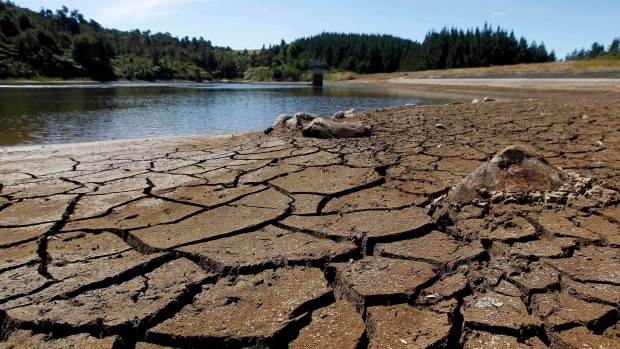World leaders wade into water to fight climate change
 Nov. 19: As the United National COP22 Climate Summit winds down in Morocco and countries ratify the Paris Agreement, issues around water have provided a realistic focus for moving forward on mitigating climate change and adapting to a warming planet.
Nov. 19: As the United National COP22 Climate Summit winds down in Morocco and countries ratify the Paris Agreement, issues around water have provided a realistic focus for moving forward on mitigating climate change and adapting to a warming planet.
The World Water Council, an international organization of water specialists and stakeholders dedicated to addressing global water issues, facilitated the first Global Climate Action Day for Water on November 9th and made water issues much more visible during the climate debate. They are also presenting a Blue Book On Water and Climate that shows how water is the first victim of climate change and has a powerful effect on almost every aspect of human life.
This is a brilliant strategy because it brings climate change into the the realm of the real and tangible world. Carbon emissions from tailpipes and smokestacks are largely invisible as they drift up into the atmosphere and mix with all the other invisible gasses that make up our air. We don’t see the rise in carbon dioxide above 400 parts per million that scientists say is a tipping point. The action of greenhouse gases trapping heat and preventing it from escaping into space goes on without any obvious sign to our eyes. The sky is still blue, clouds still drift by, nothing obvious seems to be happening. This makes it easy for climate change deniers to say it is all a hoax.
But when the effects of a warming world do show up, we usually see images of water behaving in some destructive way. We see floods from more severe storms, glaciers are visibly retreating, ice caps disappearing. We see the effects of drought, with more frequent and intense forest fires, starvation from parched agricultural fields. We see hydro dams losing their reservoirs, and often social unrest and conflict over water availability.
That’s why delegates at COP22 agreed that focusing on water will, by default, deal with climate change in a very realistic way. They are calling on politicians to enact laws to ensure not only water supply and quality for people, but also ensure supplies for energy and industrial production. They are also encouraging financing from developed countries to provide funds, especially for countries in Africa, to provide clean water as a fight against disease. That alone would save millions of lives.
Here in Canada we tend to take clean water for granted because Canada is tied for third when it comes to the world’s fresh water supply. We assume water will always be there when we turn on the tap, and it almost always is. But in so many parts of the world, the water that comes out of tap is contaminated with pathogens or pollutants, if it is there at all. People walk kilometres carrying jugs of water on their heads to meet the daily needs of their families. And that is just drinking water.
Water is vital to most industries, is used to produce energy, and let’s not forget its role in preserving biodiversity, all the rest of the life on the planet.
Water is the lifeblood of the planet. It knows no borders and life cannot exist without it. Losing water because of climate change is a stark reminder that what happens in the atmosphere affects everything on land and in the seas.
The big issues around climate change are mostly in the future. Sea levels will rise, submerging Florida and low-lying island countries. The Arctic ice cap will disappear in summer, warm the region, melt permafrost and threaten life in the north. Deserts will grow, fertile agricultural regions will dry up. These are all serious effects, but it is hard to mobilize politicians into action when Florida is still there, ice still exists in the north, and our wheat belt is still intact.
Foresight has never been a hallmark of political action. We usually wait until a crisis arises, then leap into action.
But water issues are here today. And the big benefit to focusing on water quality and quantity for everyone, is that we get immediate, tangible rewards. Not only will it fight disease, provide food and economic security for countries in need, we will by default be fighting climate change and therefore dealing with those future issues as well.
It’s a win win situation. cbc.ca
